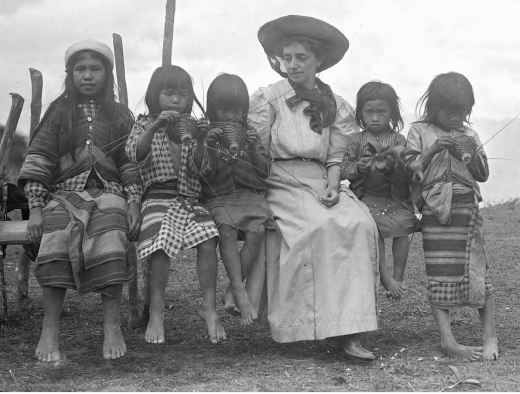The Humanities Collaboratory is pleased to announce a new 5×5 Incubator Grant team, Connecting Communities and Collections: Exploring Reciprocal Access to Philippine Indigenous Archives at Michigan.
The team will aim to increase ethical and culturally-informed plans for shared stewardship, like “digital repatriation” and protocols for providing access, focusing on the colonial archives of Dean C. Worcester, which is among the University’s longstanding collection of Philippine ethnographic collections.
They propose to explore and answer the following questions: How can we ensure broad yet ethical access to culturally-sensitive images of Indigenous Filipinos? How can a digital platform simultaneously deliver cultural content but also build a reciprocal relationship with communities? How do we ensure that the collections are accessible and usable not only by academic researchers, but also by Indigenous source communities? 5×5 team collaborators include Ricardo Punzalan (School of Information) and Deirdre de la Cruz (History and Anthropology), both of whom have deep ties with the Philippines in their scholarship and community relationships. Bringing curatorial and archival expertise are team members Nancy Bartlett (Bentley Historical Library), Martha O’Hara Conway (University of Michigan Library Special Collections Research Center), and Alicia Ventresca Miller (Department of Anthropology and Museum of Anthropological Archaeology).
The story of the photograph: “Mrs. Worcester with Igorot girls who are showing her how to make baskets” (Dean C. Worcester, Photo 10N027, scanned from original glass plate negative, University of Michigan Museum Anthropological Archaeology). This photograph was taken on April 25, 1907, in Atok, located in the province of Benguet, a mountainous region in the northern part of Luzon island, Philippines. This image is one of the thousands of photographs attributed to Dean C. Worcester (1866–1924), an American natural scientist, colonial official, and entrepreneur, who occupied several key positions in the US colonial government of the Philippines. A zoologist by training, Worcester traveled to various regions of the Philippines to conduct ethnological surveys, and during these trips he coordinated the photographic documentation of many indigenous groups throughout the islands. Worcester circulated many of these photographs through his publications as well as by selling them to collectors or donating them to natural history museums. The Worcester ethnographic photographs continue to stir controversy both for their content depicting indigenous Filipinos as savages needing American tutelage, as well as their use by Worcester and others to support the case for U.S. annexation of the Philippines.


